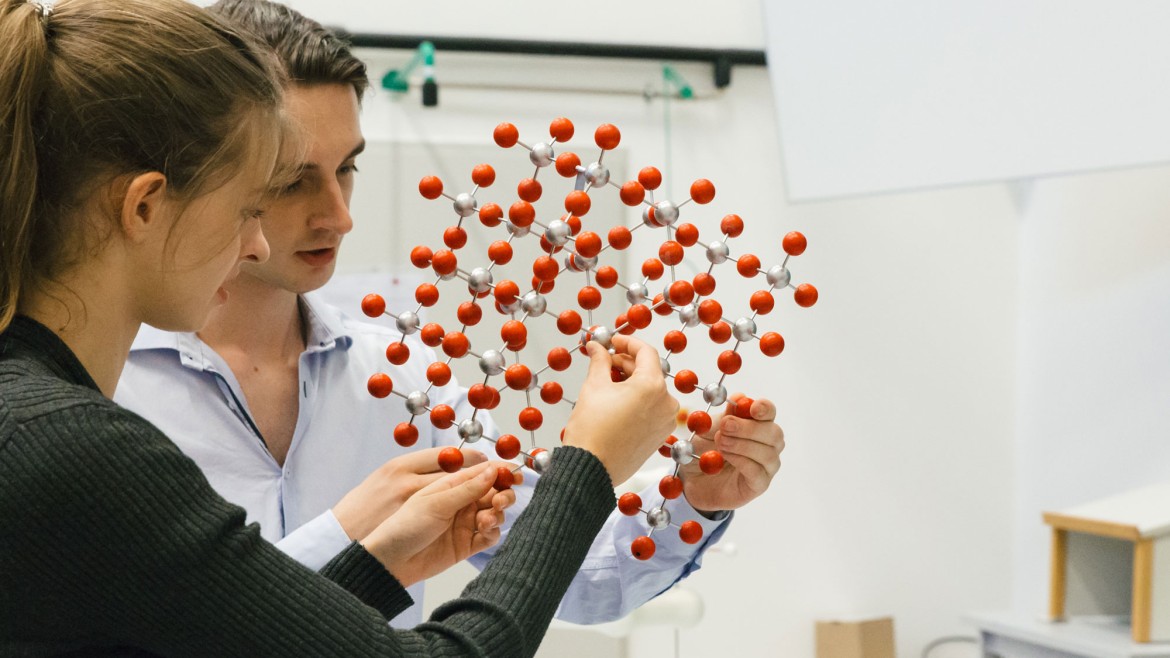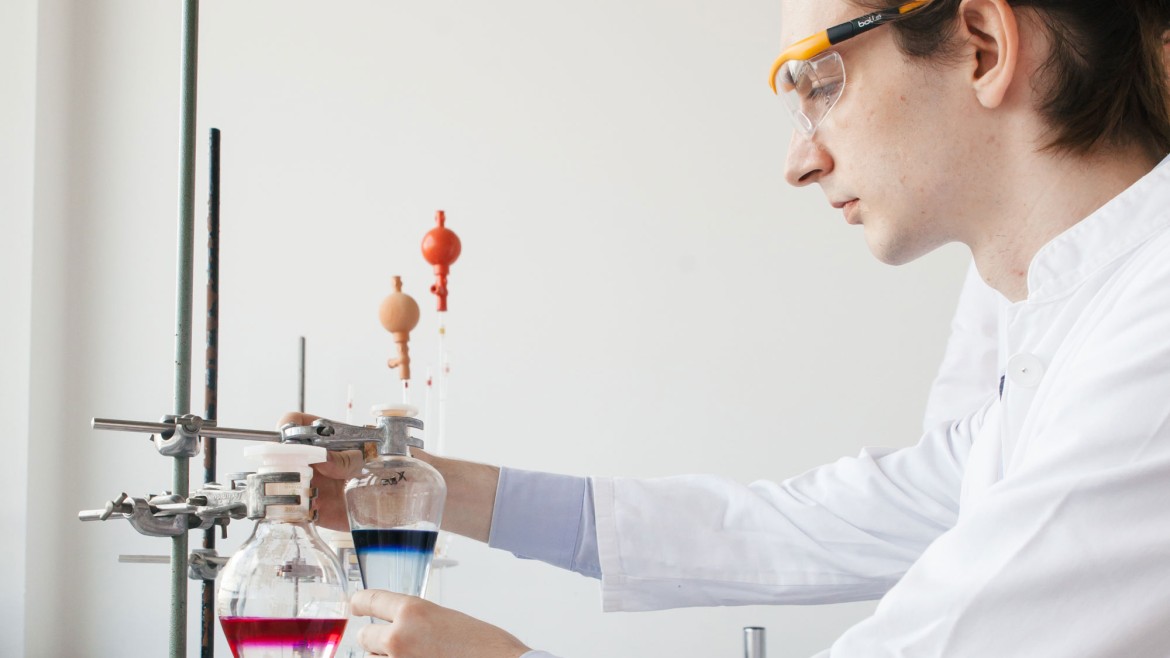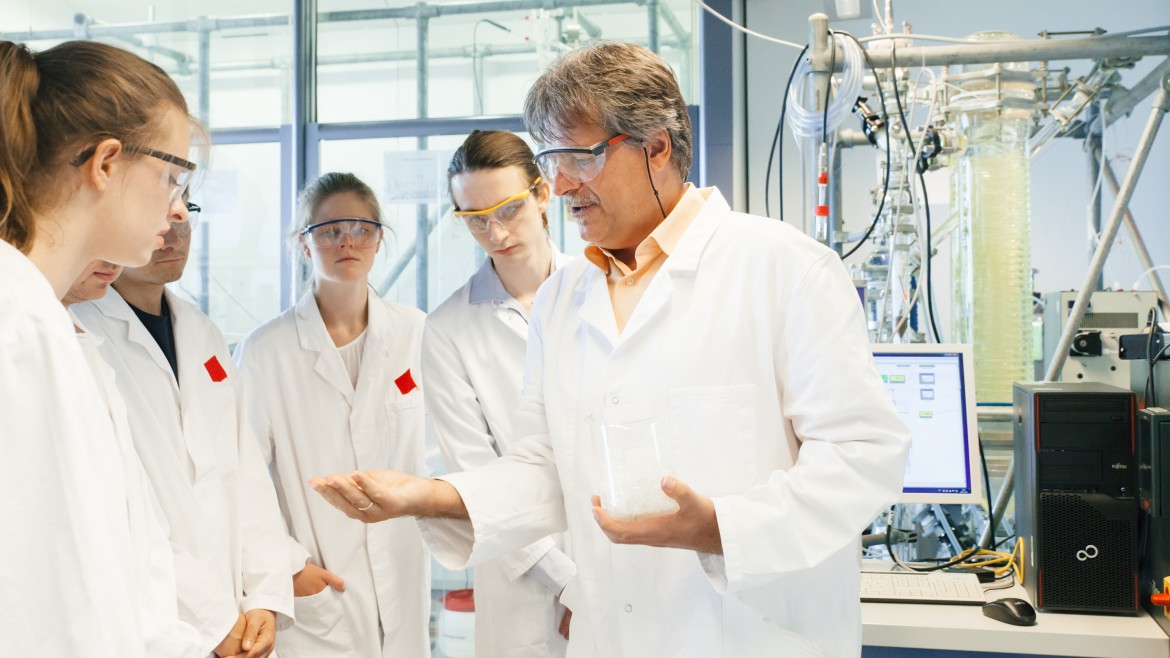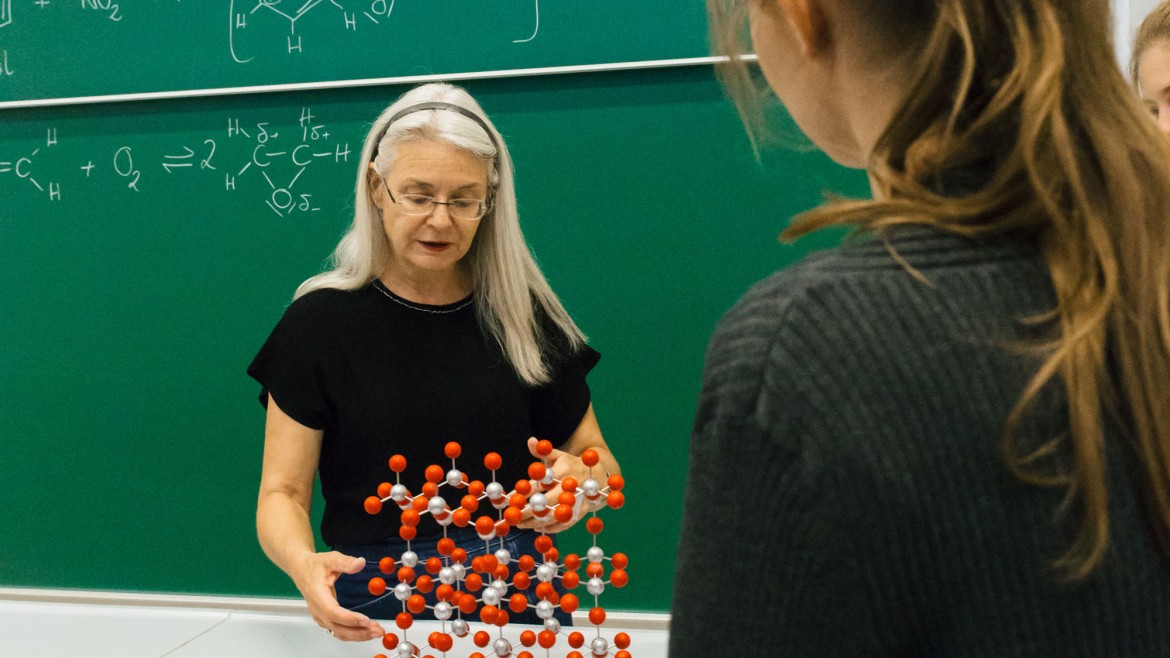Chemical Engineering (B. Eng.)
To the chemist, chemistry is always and everywhere. It is the one essential discipline (a physicist, of course, might just see things differently....).

If you want to understand what the world is made of and are enthusiastic about technical issues, this interdisciplinary course is the right choice for you.

In the Bachelor's degree program in Chemical Engineering, you will acquire the ability to combine chemical and engineering issues and apply them in practice. You will learn to formulate chemical reactions in the form of correct reaction equations, derive reaction approaches, scale them up and plan them for the pilot plant scale. You will also develop the necessary plant concepts, supervise their construction in a team and be able to carry out safety-related assessments.
You will gain a sound understanding of the relationships between different chemical sub-areas and will be able to apply these to practical tasks. You will be able to assess the hazard potential of chemicals and implement the necessary measures for handling and disposal.
In the field of analytics, you will be able to develop concepts, carry out experimental tests and evaluate the reliability of the data collected. You will be familiar with common analytical techniques and equipment, assign appropriate analytical methods to problems and be able to use, maintain or further develop equipment in a targeted manner.
You will have mastered the basic mechanical and thermal operations and their assignment to the corresponding equipment as well as the selection and application of these techniques in production. You will be able to design reactors, work on them independently and draw up instructions for pilot plant and production facilities.
With a specialization in the field of materials, you will have a broad foundation for selecting and combining materials for specific applications or developing new materials with tailored properties.
The training is supplemented by content from economics, which will help you to solve complex, interdisciplinary problems. At the same time, we promote your communication skills and social commitment. This includes teamwork in interdisciplinary projects, raising awareness of sustainability and environmental protection in modules such as “Technical Environmental Protection/Water Protection” and promoting critical thinking and a sense of responsibility in practical and socially relevant projects.
Special attention is paid to the mobility transition: With modules such as “Electrochemistry”, we prepare you to play an active role in shaping the transformation of the automotive industry from combustion engines to electromobility.

What does our accredited Course of Study in Chemical Engineering offer?
An intensive interdisciplinary undergraduate course of study anchored by applied practice. You will acquire the skills of an engineer of chemistry through a comprehensive, self-directed study of the fundamentals of the natural sciences and their methodology Together with the underpinnings of a thorough education in the natural sciences, we teach the classic engineering fields of energy, heat, device and metrology, to name but a few.

The course of study consists of six semesters of theory and one internship semester.
The bachelor’s thesis is expected to require four months, and is usually written under the auspices of a firm which cooperates with the university. This cooperation is often a first contact to the industry which leads to employment.
German Language Requirement Note:
Most lecturers are held in the German language. Competency in spoken and written German sufficient as to succesfully complete the Bachelor or Master Courses of Study is required.
This course of study qualifies graduates for professional careers in the following fields:
- Development of methodology and the application of chemical and instrument based analytical processes
- Development of new materials and processes
- Process control, Metrological and automated control systems for test stands and production
- Servicing and marketing of analyzing/measuring devices
- Projecting and operating sites whether in laboratory or in production scale
- The application of automated control in the field of chemical engineering
- Maintaining safety regulations in all industrial fields involving dangerous materials
- Professional consulting and appraisal services
Many other professional careers are open to our graduates. Professionals with chemical engineering credentials are sought after by many businesses, associations, engineering offices, insurance firms, universities and research institutes. Civil service and independent engineering are two further areas for which the interdisciplinary competence and thorough grounding in the natural sciences of our course of study prepare graduates well.
